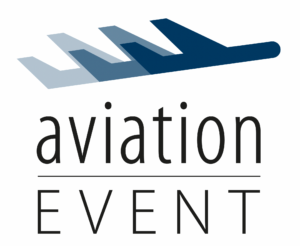AA quoted in Politico
Brexit clouds over EU-US open skies agreement
By Cathy Buyck- 4/25/17, 6:50 PM CET
U.S., EU and U.K. air transport negotiators will have to scramble to update the decade-old transatlantic open skies agreement to prevent aviation chaos in the wake of Britain’s departure from the EU.
At the moment, air travel between the EU and the U.S. is regulated by the open skies agreement signed in April 2007. It allows all European airlines to fly without restrictions from any point in the EU to any point in the U.S., and beyond and offers the same terms to American airlines flying to Europe.
The problem is that the agreement is between the U.S. and all 28 EU members states (plus Iceland and Norway).
Once the U.K. quits, the agreement has to be amended to cover all remaining 27 European states and the U.S., with the U.K. possibly negotiating its own agreement with both other parties. Revamping the deal won’t be easy. The original open skies talks took seven years and 19 rounds of painstaking consensus-building to complete.
In the unlikely event of a breakdown in talks, 16 of the European countries would fall back to bilateral agreements in place in 2007, before open skies were agreed. The issue for London is that 10 years ago, it didn’t have a bilateral open skies deal with the U.S., which could create massive problems if the clock is turned back to 2007.
Bermuda II, as the U.K.-U.S. air services agreement, was called, restricted access to London Heathrow to two only U.K. and two U.S. airlines. Heathrow is Europe’s busiest airport handling 76 million passengers last year. Reverting to Bermuda II “would have profound implications for airlines and their customers, no matter how unlikely,” according to the International Air Transport Association.
That has all sides are hoping Brexit doesn’t create an air transport crisis.
“I’m quite hopeful [the U.S.] will be able to maintain the open skies agreement with the European Union,” John Byerly, the lead U.S. negotiator of the original open skies agreement, told POLITICO. “And my hope is the United States and the United Kingdom, in due time, will be able to work out an agreement on open skies after Brexit. I think the stakeholders involved, especially the airlines on both sides of the Atlantic, are committed to the open skies framework we negotiated.”
Uncertainty in EU-U.S. air travel would have enormous business and financial consequences.
Major airlines on both sides of the Atlantic have set up joint ventures and these partnerships have anti-trust immunity, allowing participants to agree on routes, capacity, and fares without triggering regulatory problems. Together, four such alliances control almost 77 percent of the capacity on transatlantic routes, according to aviation data provider and consultant CAPA Centre for Aviation. They are highly profitable, so airlines have a clear interest in keeping them alive.
“The immunized joint ventures would not be approved if there is no open skies environment between the U.S. and the EU and the U.S. and Great Britain,” said Byerly, a former U.S. State Department official who now works as a consultant for the airline industry.
Daniel Calleja, who led the negotiations for the EU as director for air transport at DG Move, also is confident the EU-U.S. open skies will survive.
“Traffic has grown enormously. The agreement is bringing concrete benefits to both sides,” he told POLITICO, speaking along with Byerly as part of a podcast for the anniversary of the agreement. “When you have something that works, it will be difficult to backtrack. We have a framework that is beneficial for consumers, it is beneficial for the stakeholders, for the airports on both sides of the Atlantic.”
Because of the scale of the original agreement (it covered about half of world passenger traffic and 70 percent of cargo traffic), its effect has been immense. The number of direct EU-U.S. city links grew by a third, and the number of passengers increased from 50.6 million in 2007 to 54.5 million in 2015, according to Eurostat.
Transport Commissioner Violeta Bulc called it “a game-changer for Europe’s external aviation policy.”
The goal was to bring together the two largest aviation markets in the world into “one big open aviation area” in which investment could flow freely and in which European and U.S. airlines provide air services with few restrictions, said Calleja, currently director-general of DG Environment.
Not all of the EU’s objectives were achieved. Allowing EU airlines to operate domestic routes in the U.S. was a no-go for the U.S. side. The U.S. also rejected an EU proposal to align ownership and control requirements, something that would have eventually allowed U.S. and EU airlines to merge.
“The agreement does not get us to the obvious end state of a free market, but it is a step in the right direction,” said Andrew Charlton, managing director of Aviation Advocacy, a Geneva-based consultancy. “As we consider Brexit, the rise of protectionism and a suspicion of transparency, we should be grateful we have that agreement at all.”
Restarting talks on open skies would take place in a much different environment than during the original negotiations. There’s a lot more skepticism about free trade and deregulation, fuelled by the protectionist Trump administration in Washington and rising populism in Europe.
“There is some backpedaling on the benefits that open skies and free trade can bring,” said Byerly. “In many respects, as we celebrate the 10-year anniversary of this agreement, we can celebrate the two sides having the foresight, I don’t know if we knew it at the time, of seizing an opportunity that might not be feasible today or in the future.”
Link to Politico
